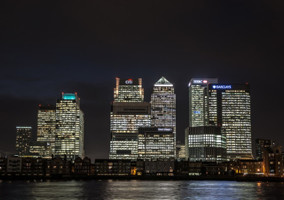Markets have reacted to the collapse in demand being wrought across many sectors, as consumers are encouraged to stay at home in response to the coronavirus outbreak.
The longer the crisis lasts, the greater the risk that companies will face severe cash-flow problems.
As long-term investors, it’s important for trustees to avoid reactive decisions that chase performance. The key is to remain disciplined, rational, and calmly follow your strategy. There are also certain precautions an investor can take to inoculate equity portfolios against known unknowns.
When the economic tide is turning, as it is now, any shortcomings of business models are left exposed. As Warren Buffett famously said: “It’s only when the tide goes out that you learn who’s been swimming naked.”
When the going gets tough
Defensive stocks are those which perform consistently no matter the economic environment. People can stop going to the cinema, put off renovating their kitchens or buying a new car, but they do need to eat, take medication, fill out their tax returns, renew their car insurance, use their debit cards and pay their phone subscriptions. As a result, food and beverage companies, telecommunications, accountancy, payment processors and healthcare have long been considered classic defensives. Although today, technology stocks are increasingly falling into the defensive bucket. Notably, the tech-heavy Nasdaq Index has outperformed the S&P 500 during the initial phase of the coronavirus.
Internet platforms are hardwired into consumers’ daily habits and services like social media and video on demand are either free or low cost, so their usage is relatively unaffected by a fall in spending power. Meanwhile, enterprise software vendors have shifted their business models from upfront licence sales, which can be volatile, to recurring subscription contracts. There are also businesses that display counter-cyclical characteristics that thrive during downturns. During the current crisis, companies selling detergents, video conferencing, corporate messaging and home entertainment services like Netflix have benefited.
But it isn’t always easy to tell exactly how defensive a business is. The main aspects to focus on when assessing the defensiveness of a business are the balance sheet, the cost base and the business model. The key measure from the balance sheet is net debt, usually defined as total debt less cash. The more indebted a business, the higher the risk that in a slump it will be unable to pay interest or refinance debt. Investors should always be aware of a business’ debt obligations and the potential for insolvency if demand weakens.
Ideally, investors would only hold purely defensive sectors such as utilities, healthcare, telecoms and consumer staples into a recession and the more cyclical, or economically sensitive, ones like financials, industrials and materials into the recovery. But investors who have demonstrated such prescient timing probably owe it more to luck than skill — market bottoms and tops are notoriously difficult to predict.
The father of value investing, Benjamin Graham, explained this concept by saying that in the short run, the market is like a voting machine — tallying up the preferences of market participants who are not always rational. But in the long run, the market is like a weighing machine — measuring the intrinsic worth of businesses. Equally, a strategy of just holding defensive sectors has its drawbacks. Every business comes with its own risks. By avoiding companies with even moderate economic sensitivity, investors would miss out on those that can outgrow their more defensive peers over the long run, have a more sustainable competitive advantage and trade on more attractive valuations.
By scrutinising the balance sheet, the cost base and the nature of the business, investors can tilt their portfolios towards stocks with less earnings variability than the broader market. Such stocks can be held through thick and thin, weathering economic storms and benefiting from the upswing when it arrives. The next 12 months will be a real test of which companies are swimming naked.
Andrew Pitt is head of charities at Rathbone Investment Management, which has a knowledge and insight hub on its website.
This content has been supplied by a commercial partner. Rathbone Investment Management is the overall partner for the Charity Awards.
Related articles












